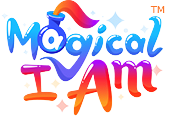The Mind’s Eye Miracle

In the first grade, an ophthalmologist and the headmaster of a learning disability school diagnosed me with dyslexia, which, at the time, was not well studied or understood. Despite neither of the two having much confidence in their diagnosis, I was placed into 3 years of remediation therapy – the beginning of my journey with treating my dyslexia.
Fellow dyslexics know all too well the shame of being caught stumbling and making mistakes while reading aloud. What I’m about to describe is how an example of how a dyslexic person’s childhood reading struggles can follow them into their adult life.
I am a lifelong churchgoer – aside from a seven-year stint in my early adulthood -- and attend an Episcopal Church. Here, the congregation either stands or kneels while saying creeds aloud. As an adult, I started experimenting with my reading ability while in church.
Every six weeks to six months while attending, just before the congregation would begin to read aloud, I would tell myself, “I am going to say this passage smoothly without any stumbling over the words.” Since my words would be drowned out by everything being spoken, I felt comfortable attempting to reach this goal.
In all my attempts, which span over decades, I never once accomplished a single fluid, smooth oral read.
Excerpt from Patton: A Genius for War, by Carlo D’Este, (p46):
The usual definition of dyslexia as “a learning disorder characterized by reading, writing and spelling reversals” is highly misleading. This description barely scratches the surface of a complex disorder that, in addition to creating difficulties with reading and writing, includes an inability to concentrate, sharp mood swings, hyperactivity, obsessiveness, impulsiveness, compulsiveness, and feelings of inferiority and stupidity."
A tendency to boast is also very common among dyslexics. Moreover, dyslexia often affects spelling, grammatical, and mathematical abilities. Like Patton, many dyslexics are eventually able to overcome the reading and writing aspects of the disorder and lead productive lives. What is often overlooked by those who perceive dyslexia as merely a reading problem is the lifelong traumatic emotional effect it has on its victims. Until recently those who studied dyslexia never seem to have grasped fully that its reading aspects were merely the tip of the iceberg. (D’Este p46)
In 1996, while recovering from a devastating period of depression – the fourth bout in 17 years, all of which stemmed from dyslexia -- I read the excerpt above. It changed my life.
The type of change I experienced will impact the futures of hundreds of millions of dyslexics and struggling readers. And it’s about to impact your child’s life.
While recovering from the depressive episode, I came across Ron Davis’ book, The Gift of Dyslexia, which led me to attend a Davis Dyslexia Association International (DDAI) Dyslexia Correction Program. Through this venture, I discovered the power of the Mind’s Eye, a game-changing tool that motivated me to develop Sky Village – Trail of Spells and our Bindu M.E. Tech patent.
Discovering the Power of the Mind’s Eye
The Mind’s Eye is an incredibly powerful resource for both dyslexic individuals as well as those who can read but do not like to.
From my sessions with Fred Furtah, Headmaster of Furtah Preparatory Academy, I knew ahead of time that at DDAI I would be making the upper-case and lower-case alphabet letters with sculptor’s clay.
What I didn't know was that it was going to take me approximately five hours over the course of two days to be able to visualize and say these two sets of letters in reverse from Z to A. At that time, I was 42 years of age and was earning a six-figure income from my real estate career. Needless to say, I was quite humbled by the experience and chose not to call home to tell my family of my meager accomplishments.
During day two, I mastered 14 punctuation marks and maybe one or two abstract words. Again, I didn't call home to tell of my accomplishments.
On the morning of day four, while working to master the word "that", I lost my composure and burst into frustration. I angrily stated to my facilitator, Sharon Pfieffer, (a woman to this day that I still appreciate and consider to be a saint), “This is so stupid! I can't believe I have paid all this money to come out here and work with clay doing all these words that I already know!”
Sharon was a bit taken back, but calmly said to me “take an early lunch; restore your composure; and I will have you read something after lunch.”
The Miracle
When I came back from lunch, Sharon told me that if I could read a newspaper article, that meant I could read at the eighth-grade level.
But earlier that week, I found out I couldn’t read aloud and comprehend 50% of “Cooking with the Sun” -- a fifth-grade level text. The realization that I was functionally illiterate nearly brought me to tears.
As anyone who knows me will tell you, I am a bit of a joker. So, my response to Sharon was, “since I can't read out loud at the fifth-grade level, give me something at the third-grade level.” Sharon laughed, pulled out a third-grade textbook, and had me “check my Mind’s Eye,” which means to use your imagination and visualize an already-set point above your head. By doing so, the Mind’s Eye moves to that location.
Magical I Am named this action, “Go to The Spot.”
I did so and then read several paragraphs. She abruptly stopped me and asked me what I read. I made a joke or two about it, which conveyed to us what we both knew -- I had comprehended the text.
Sharron proceeded to ask me what I wanted to read next, and I chose an eighth- grade level text. Again, she had me check my Mind’s Eye, and I read several paragraphs then stopped. She asked, “What's wrong?”
I was almost in tears. I said, "there’s no more stumbling or herky-jerky reading and I understand what I just read.” Then excitedly, I said, "Go get me the Bible! I have never understood that book.” Her response was, “This is a business building, Bill. I don't know if I can locate a Bible here.... “
Long story short, she came back with the Bible. Again, she had me check my point and read. After, she asked questions about every three or four verses that I read. Even though I was answering her questions in a joking manner, we both knew I understood what I was reading.
Then I said, “Go get me some poetry! I have never understood that stuff.” Her response was, “Bill, this is a business building….”
She came back with some poetry.
I checked my Mind’s Eye and read it to her. After I finished reading the poem, I looked up and a tear was flowing down her left cheek. I said to her, "Why are you crying, I'm the one who is dyslexic?"
She responded, "No one has ever read poetry to me before!” It was an incredibly powerful and moving moment for the two of us.
So, in four short days, I was able to accomplish something that I had not been able to do for 36 years of my life — read aloud fluidly and with comprehension.
It was, and still is, nothing short of a miracle.
Now, here's the epiphany I want you to grasp and run with: Amazed, I asked Sharon, "How can this be? I've only mastered the upper- and lower-case alphabet letters, punctuation, and maybe eight abstract words. And... this crazy stupid thing y'all call the Mind’s Eye, yet I'm reading fluidly with comprehension.”
Her response was simply, "That's the power of the Mind’s Eye." Then she added, "You still have to master all the Trigger Words because the Mind’s Eye cannot power through every reading situation.
See, the dyslexic thinks in terms of meaning - something concrete that can be experienced, like a picture or feeling that they can be certain about. When they are having difficulty reading, they are missing the meaning or a picture, which is usually the result of confusion of the Mind’s Eye caused by an abstract word or symbol.
Fast Forward to Today
I have gone to The Spot (also called My Bindu) so many times in the last 25 years that I couldn’t fathom what the count would be. Sometimes, it seems I Go to The Spot unconsciously. However, when I do Go to The Spot consciously -- and I might add, effortlessly -- a feeling comes over me that lets me know my Mind’s Eye is on “The Spot.” I can then proceed to whatever task I was intending to do. The neural pathway has been built and strengthened to the degree that it's now a part of who I am and what I do in this crazy thing we call life.
In closing, you might want to know, do I still stumble over words when reading? Simply put, the answer is a yes, of course. Confusion is a part of reading and life itself. Any individual who says they don’t get occasionally confused when reading silently or aloud is either lying or the supreme genius. That said, now when I read, whether silently or aloud, and I hear a stumble or am aware I am confused, I know what to do.
